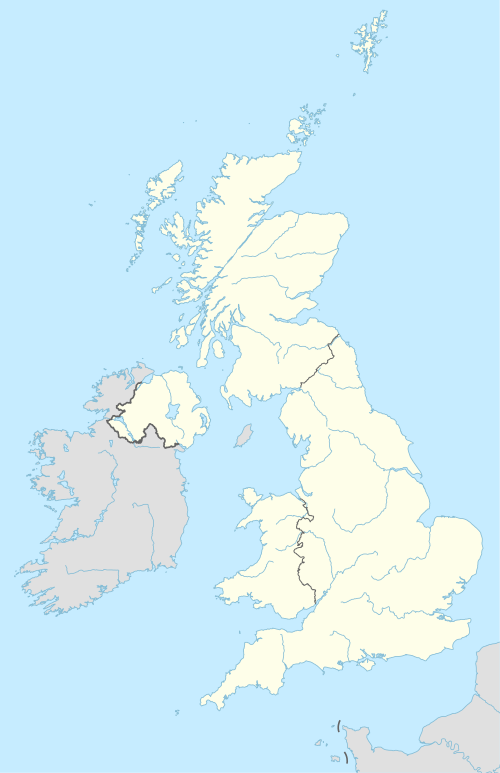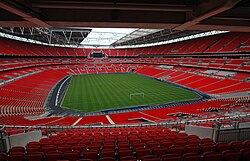| Football at the Games of the XXX Olympiad | |||||||||
|---|---|---|---|---|---|---|---|---|---|
 Football pictogram for the 2012 Summer Olympics | |||||||||
| Event details | |||||||||
| Games | 2012 Summer Olympics | ||||||||
| Host country | United Kingdom | ||||||||
| Dates | 25 July – 11 August 2012 | ||||||||
| Venues | 6 (in 6 host cities) | ||||||||
| Competitors | 467 from 24 nations | ||||||||
| Men's tournament | |||||||||
| Teams | 16 (from 6 confederations) | ||||||||
| |||||||||
| Women's tournament | |||||||||
| Teams | 12 (from 6 confederations) | ||||||||
| |||||||||
| Editions | |||||||||
← 2008 2016 → | |||||||||
| Football at the 2012 Summer Olympics | ||
|---|---|---|
 | ||
| Qualification | ||
| men | women | |
| Tournament | ||
| men | women | |
| Squads | ||
| men | women | |
The association football tournament at the 2012 Summer Olympics was held from 25 July to 11 August, and was the only sport to begin before the official opening day of the Olympic Games, two days before the opening ceremony. It was also the only sport to be held at multiple venues outside London (the host city of the Olympics), with Manchester, Glasgow, Newcastle, Coventry and Cardiff all hosting matches. The finals were played at Wembley Stadium. Associations affiliated with FIFA were invited to send their senior women's and men's under-23 national teams to participate; men's teams were allowed to augment their squads with three players over the age of 23. Five hundred and four football players competed for two sets of gold medals. [1]
Contents
- Venues
- Competition schedule
- Qualified nations
- Men's tournament
- Women's tournament
- United Kingdom/Great Britain teams
- Tie breakers
- Men's tournament 2
- Group A
- Group B
- Group C
- Group D
- Knockout stage
- Squad restrictions
- Women's tournament 2
- Group E
- Group F
- Group G
- Knockout stage 2
- Squad restrictions 2
- Medal summary
- Medal table
- Medalists
- Notable events and controversies
- South Korean political statements
- Iranian women's team dress code violations
- Use of incorrect flag for North Korea
- Canada–United States semi-final
- See also
- References
- External links
For these games, the men competed in a 16-team tournament and the women in a 12-team tournament. The draw for the tournament took place on 24 April 2012. [2]







